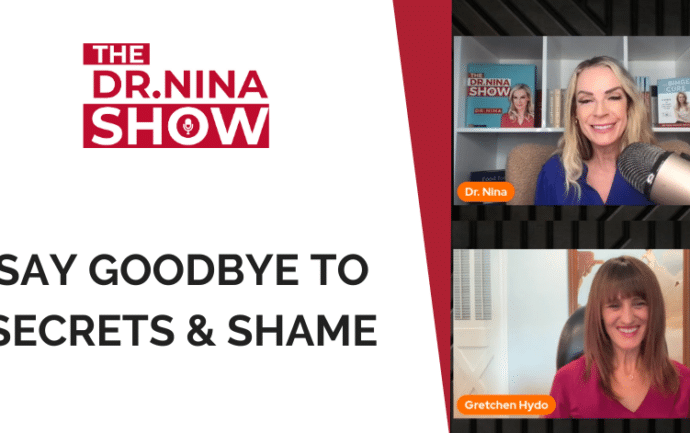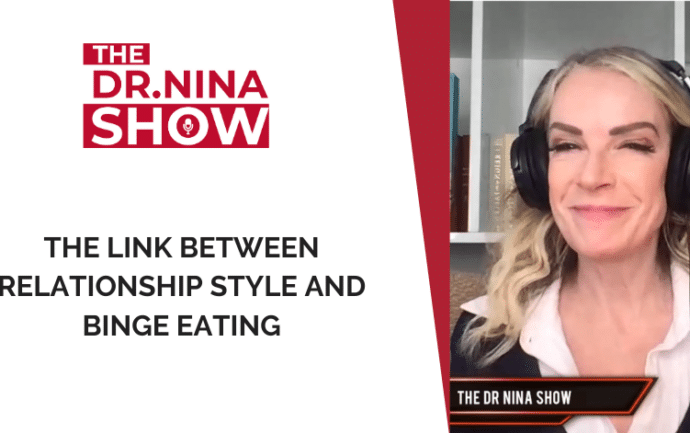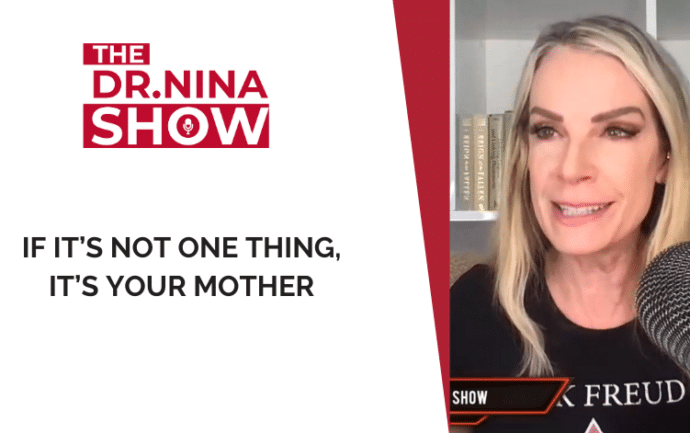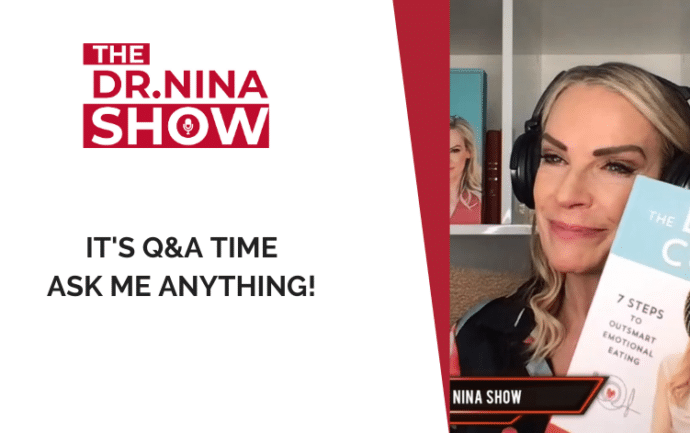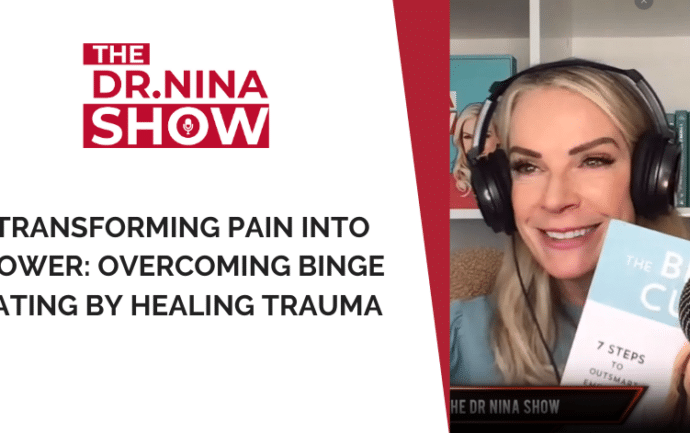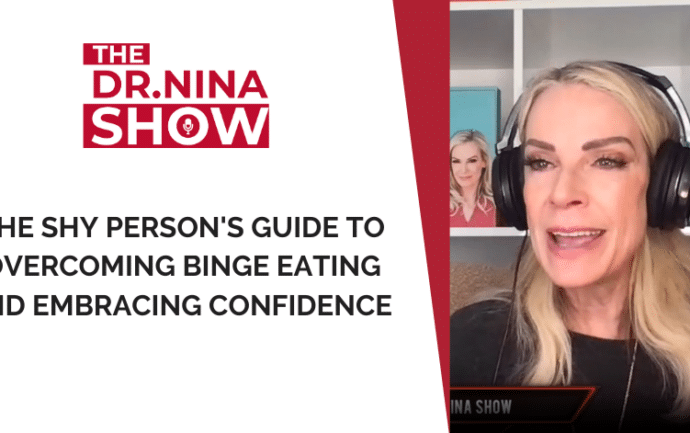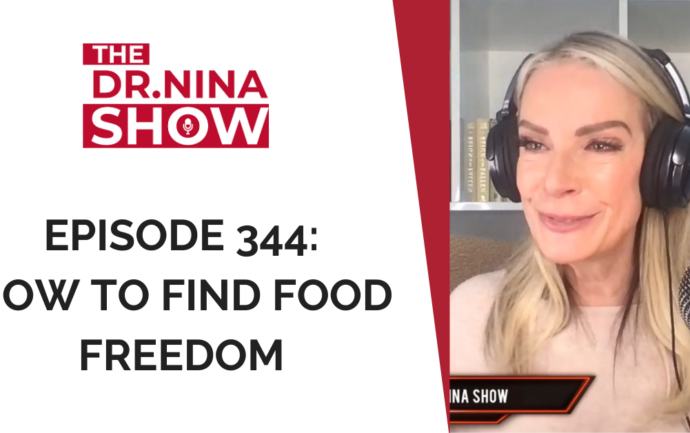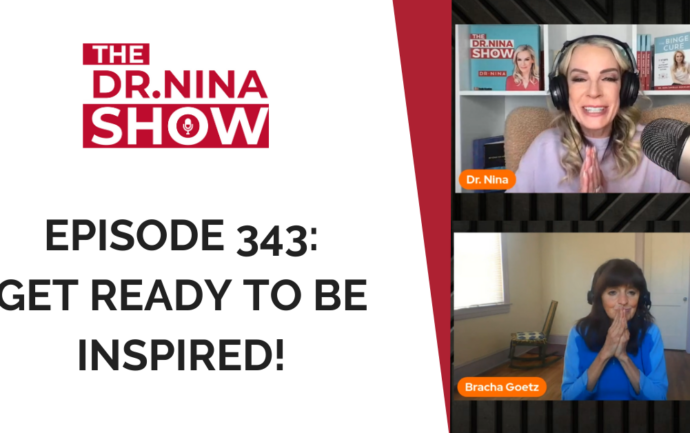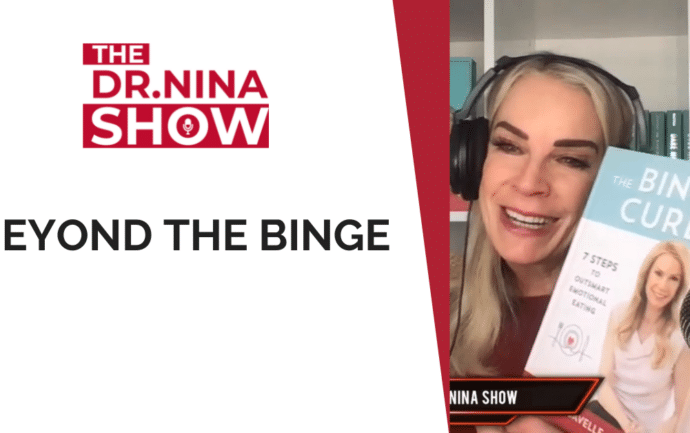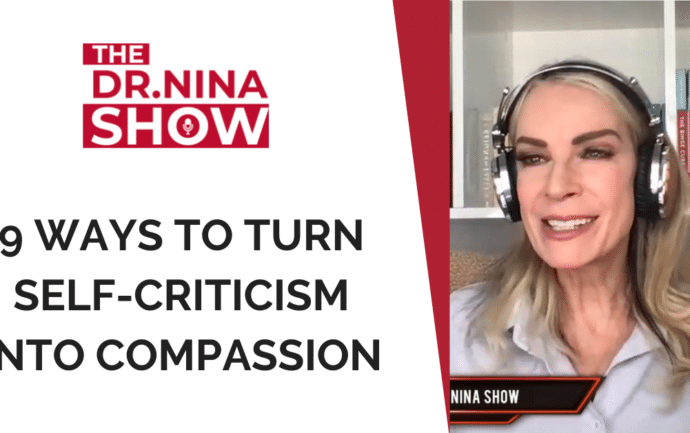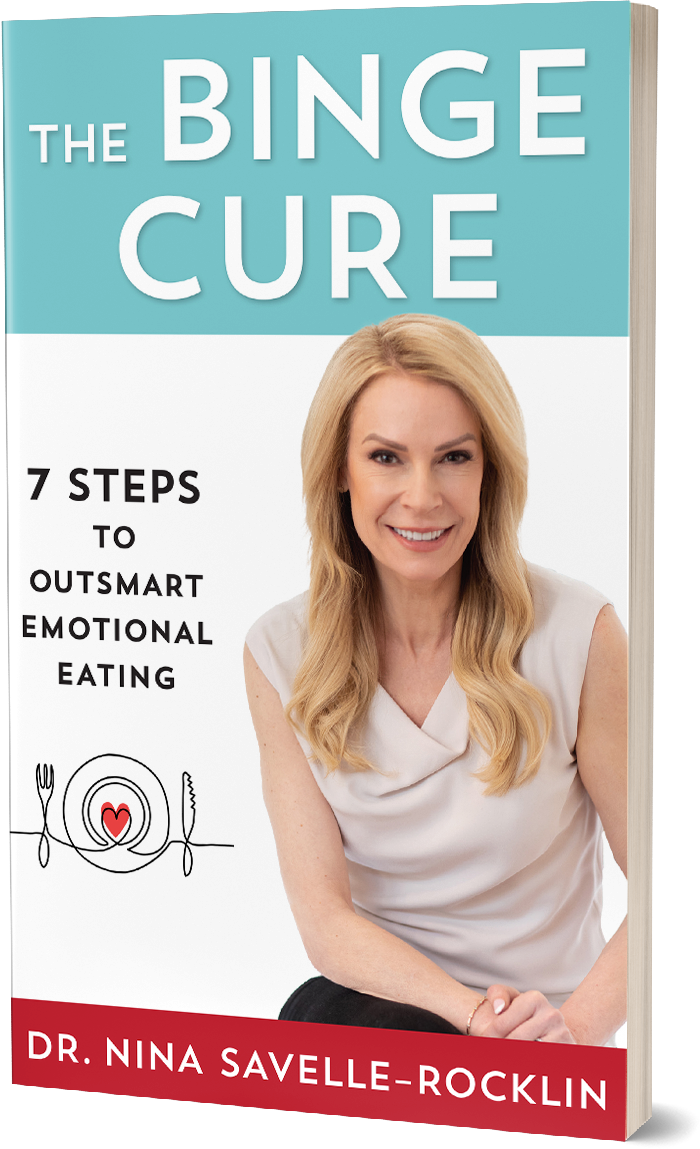Dr. Nina Savelle-Rocklin
Sugar Addiction, Mental Health, Self Esteem & Michelangelo
Summary
Sugar addiction is NOT a thing! Our relationship to ourselves is the most important and how that applies to what and how we eat.
Transcript
You are listening to the Dr. Nina show with Dr. Nina Seville Rocklin only on La talk radio.
Getting a healthy weight and getting on with your life
Dr. Nina: Welcome to the Dr. Nina show here on La talk radio and Instagram. I am your host, Dr. Nina Savelle-Rocklin, and I am here to help you stop counting calories, carbs, and fat grams. Therefore, you can easily get to a healthy weight and get on with your life because that is my mission for you. That is what it is all about. I want you to wake up and think about your day, not your diet.
There are so many other things to think about, and when you liberate yourself from the toxic preoccupation and obsession the obsessing of food thoughts, what are you going to eat? What are you not going to eat? What are you going to do for exercise? How many calories are you going to burn? How many fat grams? How many macros are on and on and on? When you liberate yourself from that, there is so much else to think about.
That is what I want to help you do. If you would like to join me today, the caller number is 323-203-0815. I would love to hear what is on your mind, and what is weighing on you. Because the real problem with binge eating, stress eating, and any kind of emotional eating is not food. The real problem is what is eating at you, and yes, Jose, it is all about freedom.
We are all about breaking free from these thoughts, ideas, and societal pressures that keep us trying to be small, both in body and in mind. Do break free, let us have the freedom to be our true selves and not try to be smaller, tighter, more toned, or whatever it is you think you need to do to be better. How about living your life without thinking about this all the time? I want you to live your life.
That is my goal in my anti-diet and post-diet revolution. That is what I am trying to lead. So who is with me? I need soldiers with me.
Which is more addictive, sugar or cocaine?
Okay, so while I am waiting for someone to call me again, 323-203-0815 is the number. Oh, I am just going to share something. I did a talk on Clubhouse. For those of you who know Clubhouse, it is this new audio app where you go and you just talk to people and they can ask you questions if you have a room and things like that.
Therefore, I did a room with Dr. Maggie Landis, who is awesome herself. If you do not know her, check her out. Moreover, someone called in, and they were talking about food addiction. They said oh, you know, food addiction. It is real, it is a thing, and then she told me about the study where these rats had been given the choice between having cocaine or sugar.
What do you think they had? Well, they had sugar. She took it as proof that as the researcher said, Oh, this is proof that sugar is more addictive than cocaine. There have been other studies like this with heroin. Oh, see, rats will choose sugar over heroin every time. Rats will choose sugar over cocaine every time. See, it is more addictive than drugs. Hold on, folks. Not so fast. The reality is that, Oh Josh, Hold on. I will be right with you. I am just going to finish my thoughts about this.
The reality is that rats are not motivated by cocaine or heroin. Rats are motivated by food. Sugar is food, and therefore rats are going to choose sugar every time it is not proof that sugar is a more addictive substance than cocaine or heroin.
It is proof that rats, especially when hungry because I believe in some of these studies, these rats were starved. That rats will seek, which ensures their survival over that which makes them high. Okay, just wanted to start with that in case any of you think that there is such a thing as sugar addiction. No, no sugar addiction. Maybe you will feel like it, but it is not a thing.
A talk with Josh about the recent shooting and what makes them do such thing.
Dr. Nina: Josh, welcome to the show.
Josh: Hi. Dr. Nina
Dr. Nina: Hey Josh, how are you?
Josh: I am doing well. Following you from Boulder, we had a shooting here. It has been all over the news that we have a mass shooting here and that has upset me. So I thought I'd come on and talk about how that might be affecting my approach to whether it's a setback or whether it's something that I can just kind of heal and get through.
Dr. Nina: Yes, Josh, I am with you in that horror and the awfulness. This is the second shooting in two weeks in this country. The senseless shooting in Boulder, Colorado, killed ten people. It is just so painful. It is so horrifying. It brings up all kinds of feelings. What does it bring up for you? By the way, your audio is a little hit-and-miss. I do not know if you are away from your phone or what is going on, but maybe you can get closer.
Josh: Oh, yeah, that is too bad.
Dr. Nina: Oh, now it is good.
Josh: No, it is better. Okay. Yeah, what it brings up for me is, I feel like a lot. I do not know if it is from my childhood or if it's just from the shooting. I mean, it could be just that I am sad, and the shooting brought it out more. Do you know what I mean?
Dr. Nina: Not everything is your child. Right? Josh, even Sigmund Freud famously said, when his daughter said she had a dream about him and train smoking cigars, of course, all this phallic imagery. Sigmund said, Oh, sometimes a cigar is just a cigar. So you may have, you may just be dealing with the actual, in real-time horror of this shooting of the powerlessness as terrible things unfold as of the randomness of bad things happening.
We like to think that we can keep ourselves safe and sometimes you just go to the store for some groceries, then you end up in a shooting situation. It can bring up many things, but not everything has to do with your childhood. So pay attention to what is stirring up for you now.
Josh: Yeah, and I just want to say I am not involved with it. I was not there. I do not know anyone who was there. So that's my, you know, disclaimer, I am not one of the people that has suffered real trauma from it. This is a smaller city and it feels like I know the area.
There are my stomping grounds. I live a few miles away only, which is why I felt this as if I was someone who might have been there, but I should not say that because I cannot imagine if one was there. If one knew someone who got hurt, or I do not know, if there is anyone who got hurt, I think they all died.
I cannot even imagine the trauma from something like that. However, I do feel a great sense of loss from it and that is how it has been since it happened.
Dr. Nina: Well, you have empathy.
Josh: Yeah
Dr. Nina: You have empathy. You did not have to be there to feel that sense of loss or to feel that pain when you hear about the police officer with seven children. On the other hand, you know, the special needs woman, I guess, who had worked there for 30 years or you know, or just so many people just basic, good, decent whose lives were taken, you have empathy.
You do not have to know them to feel that sense of loss. It is a loss of a sense of safety for all of us as well. You have empathy, which means you feel what they. You could feel what the people they left behind, what the people who love them, maybe feeling as well as a sense of “how is this happening in this country?”
Josh: Yeah, I think I feel like it was a tear to the community because the community functions on the belief that not only people are not going to be shooting a gun at you, but everyone will be polite and kind as you go about your daily business, and I think that the shooting tore open that, and it is going to take a long time for it to get back to normal.
There are little signs of Hope. I just came back from coffee at the pro-Street Mall, which is still only just a few miles away and there was a long line of older people waiting to go into an art store that has been closed for 15 years.
He is going to whine, and I thought, you know what, I'm going to have coffee with these people next to them to sort of see if we can get back to some sense of normalcy on this Mall. Therefore, I think there are little things that you can do to try to create a better sense of community.
Dr. Nina: Yes, and, apropos of what you're saying Jose on Instagram is saying, I think people need to stop thinking about how and more like what can I do to create change? What can we each do to create change, not just to heal the communities, but to prevent something like this from happening in anybody else's communities?
This is a tragic, horrible, senseless, outrageous, awful thing to have happened. We need to come together, and each does something, whether that thing is to write your congressman and say, why we need assault weapons available to people. We do not need that.
Or whatever it is, raise awareness or victim support or just be nice to someone that you and have a conversation with someone you might not otherwise talk to, or talk about, like help raise awareness for mental health issues when there's something that each of us can do.
We may feel like we are just a person among many, but we can each do something to create change, not just in our own lives but in our communities, which is empowering.
Josh: Yeah. I think that you know, this is not something new. I mean, we have been dealing with the Coronavirus for a year, which has been another tear to the fabric of the community that once was. But, I do think psychoanalysis has a part to play, you know, in getting back to some sense of normalcy because, you know, I'm not a psychoanalyst.
Psychoanalysts are about trying to have a dialogue where people can talk. Usually, it's just between the therapist and the patient. If we can have a dialogue, you know, psychoanalytically almost informed, we might be able to heal quicker, or at least have the opportunity. Opportunity to heal because most of the time, a community never healed from something like that.
Dr. Nina: Yes, in fact, the psychoanalytic community yesterday was sending out all these emails saying we have to do more than just say our thoughts and prayers are with the community. We have to do something more than that.
We have to create some kind of healing and not just to prevent this kind of gun violence but to create a better society. I think people are so fragmented and alienated from themselves and each other that can lead to this kind of thing happening.
We need to, especially after this year of being quarantined and not being able to be with other people to find a way to be with each other, understand each other, and connect with ourselves, which leads to healing both on a personal and community level.
Josh: Yeah, and you know, I don't know what to say; we should get rid of the gun, really God, because it's going to immediately inflame the guy with the gun who never shoots up the mall and who would never shoot up the grocery store.
I believe that there are people who have never done anything remotely like this. I mean, this person does not like God. He just got a gun six days ago because he used the gun to carry out his freak-in answers.
Dr. Nina: It is not about guns. It is about assault rifles. I mean, I know we are going a little bit off-topic, but it is not like getting rid of guns. It has to get rid of guns that kill ten people in a few minutes. We do not need those kinds of guns.
Nobody needs those kinds of guns. This is my personal opinion. Well, we do not need those kinds of guns to be available to people with mental health issues. We need to be able to prevent it at that level.
I think this is what you're talking about, Josh, we need to have a more profound shift in the way that our society functions so that people can get help if they are alienated, unhappy, angry, or depressed so that people can get the help they need, instead of acting it out.
We need much more in the way of mental health. What would be the right word, availability of mental health therapists, and just things in place so that people do not fall through the cracks? Yeah, and so they do not get to the point where they go buy a gun and kill people in a supermarket.
Symbolism-Dr. Freud
Josh: Right? You were talking about symbolism, and I feel like you were talking about Freud's cigars as a symbol for his daughter. What does the shooting symbolize for us? You know, you almost have to get into a mentality where for that person that day, that was going to relieve him of probably suffering.
I am not a psychologist. You could tell me more about that. I feel like it's almost as if it was his cup of coffee that day. It was something for him to heal himself, just as I went out to try to heal myself this morning. So well, I do not know whether it is a gun issue, but it is also a gun issue.
Dr. Nina: The problem is not the gun. The problem is that people are not able to get the help they need, and then they can get guns. Look, it is a lot easier to get a gun than it is to get a therapist. That is a problem, as far as your question about the meaning of the gun.
Well, the Freud comment, by the way, the daughter, I don't know if it's Anna Freud or one of his other daughters, but she said Popeye had a dream and you were in a train going through a tunnel and you were smoking cigars. There were all kinds of phallic imagery all over the place and he, as a father denying his daughter's sexuality, said sometimes a cigar is just a cigar.
In other words, I do not want to deal. Let me just pretend a cigar is just a cigar and not a phallic object. People who are more into the understanding of symbolism than I am would say perhaps that a gun is the ultimate phallic symbol. I am more interested in the psychology of the individual.
When we look at what are trying to look at, what does it mean to everybody? We missed the point about the psychology of one person. I do want to say something else and tie it back into food issues, which is that some people when they are struggling act out against the world, we saw that this week, we saw that last week, and we see this all the time people act out.
They take their aggression and put it outwards, they kill other people, they beat people, and their hostility to other people is outward.
For many people who struggle with food, I have found they take their hostility and aggression and turn it against themselves, they get mad at themselves, and they attack themselves with verbal bullets. I guess we could say, that they denigrate themselves, and castigate themselves.
They shoot themselves down. I mean, even think about our vernacular. We shoot each other down with words, not bullets. It just has a different way of creating harm, one is killing other people, one is killing your soul by attacking yourself, and that is why I am here and why I am on this mission, the anti-diet mission.
The self-love mission is because when you are in a different relationship with yourself, when you can be kind to yourself, support yourself, validate yourself and encourage yourself, you do not need to shoot yourself down, attack anybody else, or do anything. Because you are in a good, healthy relationship with yourself. You do not need to starve yourself or stuff yourself when you can be with yourself in a new way.
Josh: You know, I have enjoyed your show, and I enjoyed calling in because I feel like food is such a gateway into what is bothering me, and you say, in your own words, find out what's eating at you. I feel like, it's such an amazing thing that you're doing, not just providing a platform of conversation, which I've taken advantage of, but also to try to look in, even something innocuous, like food.
I am not saying that food is innocuous for anyone listening, but it generally is. In other words, he was saying, and yet it can open up to so much, good things and bad things. I think you do have to open up and talk about it to try to figure out what is going on, and that is obviously, what you are doing. And, yeah, I think there's symbolism and everything.
Dr. Nina: well, you are a keen student of psychoanalysis, Josh, I am glad, as always, that you called, and you have given me a couple of things to bring up. One of them is why food, I mean, is the symbolism of food, which by the way, should be enjoyed.
It should be one of the pleasures of life. People say to me all the time that I should just eat too, and have nutritional value. I should just eat to live and not even enjoy it. No, it should not be sustenance. It is supposed to be enjoyed. It is supposed to be you are like eating and enjoying it.
The food, our very first experience of eating, is tied to our very first experience of being held. When you see babies, they are in a mother or father's arms, they are safe and they are secure. They are in this blissful, peaceful, wonderful place, and that is tied to the experience of being fed.
On some level in our psyche, food equals a relationship. When we talk about comfort food, we are talking about a wish to be comforted. We are not just talking about comfort food, right? There is a symbolism there too, and to understand what our basic needs and wishes are to start attending to them instead of being in a toxic relationship with ourselves. That is what is liberating.
Josh: Yeah, and I feel like it is raw. I like the way that you do not think of food as an addiction. Because to think of it as an addiction is almost completely ignoring the actual unconscious, I guess, the motivation behind why you would pick up something and put it into your mouth.
Dr. Nina: Yes, I do not particularly like the word addiction because I think it has a negative connotation, even though I am the CO Editor of a book called Beyond the primal addiction, which is a phrase from Freud, who called it the primal called, talks about the primal addiction, but I will not even go into that.
Addiction is a negative word to me but if we were going to use the word addiction when it comes to food, I would say it is an eating addiction. You are not addicted to the actual substance of food; you are addicted to the use of eating to resolve something emotional or express something emotional, internal, or a conflict.
It does not always have to be, oh, I am sad, or I am comfort eating. It can also be I am in pain, so I am going to eat so much my stomach hurts. I am unconsciously converting emotional pain to physical pain because physical pain is easier to get rid of than emotional pain. It could mean so many different things that is why I say, well, I am a detective of the mind.
Detectives are searching for clues, and so we want to search for clues from a position of curiosity, not criticism, and uncover why you are doing whatever it is that you are doing with food. Believe me; almost everyone who walks into my office, now the virtual office, says that they are a food addict.
They think they have no willpower, and think they have no control, and they are wrong. There is something purposeful in their behavior. Our job as detectives is to discover what that is and find new ways of relating to yourself, which changes how you relate to food.
Dream Analysis
Josh: Yeah, and I will just leave you with something that I had a dream of last night, where my interpretation was that I was not allowing myself to enjoy. I was not allowing myself to enjoy what could be considered a sort of forbidden food, and I was not allowing myself to enjoy the symbolism of food in the dream.
But I interpreted it as that I was not allowing myself to enjoy life in the sense that I somehow placed things in my way where I wasn't allowed to say enjoy my day, not my diet, for example.
Dr. Nina: So, good dream analysis and I talked about it in my book; and I talked about developing an appetite for life. When you develop an appetite for life, purposeful use of the word appetite, in that phrase, when you can fill up on life, when you can have fulfilling relationships or fulfilling jobs, you do not need to fill up on food when you have satisfying, gratifying, fun experiences.
You do not need food for that purpose. The problem is for so many people, other people are, are unreliable, unavailable, and unpredictable. Food, which represents people symbolically, is, of course, available. You can get it anytime you want. It is predictable; it is always going to taste like what you think it is going to taste, more or less, and it is reliable.
Understanding the interplay between your fears about fully living life and having a relationship with food is a great place to explore. Yeah, given.
Josh: Go ahead.
Dr. Nina: You have given a lot of food for thought in this call today, Josh.
Josh: Yes, and I feel like when you do that, it is amazing, and the love sort of starts to arise spontaneously. You know, when you allow yourself to live, you would be surprised how close the feeling of love is. You think it is so far away from you because you are suffering so much.
However, as soon as you allow yourself a chance to eat from the forbidden fruit, if you will, I mean, it is sort of a biblical reference, you do find love, and I feel like.
Dr. Nina: When you love yourself, and you feel lovable, it is easier to find and take in that love from others. When you do not feel like you are good enough, when you are in a toxic relationship with yourself, mean to yourself and someone is mean to you, you are going to say, wow, you know me too well, let us be together.
However, when you love yourself, and when you are kind to yourself, and someone is mean to you, you are going to say, No, thank you. Therefore, all relationships, including the relationship with food, come from our relationship with ourselves. That is why it is so vital to change the way that we are with ourselves and to treat ourselves. Like someone we love, not someone we hate.
Josh: Yeah, and obviously, that was something that we learned in childhood. We probably did not get the love we needed, and then we probably thought that we did not need the love that we needed.
I think that is the tragic realization that a child has parents who may not be sufficient, who may have not sufficiently loved. But, we are adults now, and we shouldn't behave like children in that respect. We should learn to love ourselves just like you're saying.
Dr. Nina: I will
Josh: Yeah, I will take the time to love your listeners and give them a break from my voice. So that you can get on to other things, but thank you very much for taking my call and talking to you again.
Dr. Nina: Thank you, Josh. It is always good to have you on the show. You always have interesting comments and questions.
Josh: Thank you.
Dr. Nina: You are welcome. I just want to add this because Josh, what he just said as he was leaving, the way that we are treated as children affects the way that we treat ourselves. So often, we treat ourselves as we were treated, and we treat others, as we would have wished to be treated.
What is trauma and how to heal from trauma?
Therefore, the key is to heal the past so that we can put it behind us. Past is past. Otherwise, it will haunt us. By the way, there are two kinds of traumas, big trauma, and little trauma.
Big trauma is something devastating and awful that happens to you just as a violent assault, a car accident, or someone losing all his or her money and you got to move or something. It is devastating if someone dies. A big trauma is a single event, and that causes an incredible traumatic reaction.
The second kind of trauma is like a thousand small cuts, which are just as painful as a butcher knife through your heart. Those smaller cuts are the cutting remarks and not feeling good enough to never be told that you are lovable, likable, and having things that have been criticized.
It does not necessarily have to be a big, intense, and awful thing that happens. It is traumatic to have people who cannot see your worth, cannot be attuned to you, or cannot love you the way you need to be loved. When you are treated in a way that makes you feel bad, you think there is something wrong with you.
You think you are bad, and this begins this idea of Okay, I feel bad, there must be something wrong with me, why are they treating me this way?
Then you start to think, how can I make myself good, so I get the good treatment? And that leads to this notion that you have to change to earn love, which becomes a conviction that there is something wrong with you. Because you can try to change yourself in any way you can.
People are not treating you badly because you are bad. They are treating you badly because that is how they were treated, or they are just unable to be attuned to you or for whatever reason.
It creates this conviction in adulthood that there's just something indefinitely somehow wrong with you, and you need to change, and often that thing that you think you need to change becomes your weight.
You cannot change other things about yourself, but you can change your weight. Thus, starts the grand illusion I talk about all the time is that if you change your weight, you change your life. If you become smaller, you become more lovable and better in other ways.
If you are shy, you become confident. If you do not have enough friends, you are going to have tons of friends. If you do not have love in your life, you are going to have love. No, you do not have to change yourself to have those things. You have to change the way you think about yourself.
Yes, Jose is with me. Who else is with me? We have to change the way we think about ourselves, not change our bodies. Change the ideas that we have about ourselves. Lose not pounds, but notions, ideas, and thoughts of, I am not enough, I am too much, I am not smart enough. I am not that enough. Right? I do not have enough of them. I am not funny enough. I am too funny. I am not outgoing enough. I am too outgoing.
Like whatever it is. For everything that you think, you need to change about yourself. Someone else is thinking that they want to change to be more like you. We need to lose the ideas that we have about ourselves that keep us feeling as if we need to change to be better. We are likable. We are lovable. We have Freedom.
Difference between Ego and Empathy
Jose is saying ego versus empathy. You know, we all need some appropriate ego. Ego is thought of as somewhat egotistical as you have a big ego. Think of the ego as yourself, your wishes, your wants, your feelings, and yourself.
Not as in too much and not as egotistical, but just know, what do you want? What do you not want? Being more interested in you. What do you like? What do you not like?
Knowing yourself and not comparing yourself to other people, not thinking I should be more like that other person. On the other hand, I should be less like me and more like them?
To take stock of the range of qualities that you are, appreciate yourself and the things that you can change about yourself. Maybe you want to change them. Maybe you do not.
Maybe you are okay with the fact that you are a workaholic. How does it affect your life, you're okay, maybe your friends just grow every time you make a bad joke, but you have fun with your bad jokes.
So say lovey, it has to just develop a more compassionate, kind relationship with yourself, which makes you choose other people or allow yourself to be with other people who also treat you well.
One of the things that I hear a lot from our people whom they do not want to be with another person, a partner who is loving and kind. They want to find the jerk, the critic, the mean person who then they can convert into being loving and kind usually because they have some critical parent or critical someone significant in their life.
What are critical people?
Therefore, like to heal the original wound, they want to find that person who is equally as critical as the original person is and turn that person into a kind person, and it never works because critical people are critical. Critical people do not suddenly wake up and say, I was wrong about you, you are amazing. Critical people say you could have done that better, why did you do that, you got all A's, but what is up with that minus?
So critical people stay critical. However, when you heal those original wounds, then you can find people who say, Wow, you are amazing. You do not have to be perfect to be amazing, I see all in you, and I love all in you.
You can receive love and give love, and when you have that, food becomes less of an issue or a non-issue. Food becomes breakfast, lunch, dinner, or snacks, and they should be yummy. My only food rule, by the way, is it should be yummy. Food should be delicious. If it is not delicious, do not eat it. All the other food rules can go. Go gone.
Jose is saying what we learn about how love works in relationships is the way we saw our parents deal with their relationship. Yes, that is often what happens.
We see. You know, I once had a friend who was very independent and very much like her own person, and she was engaged to someone, and he had written something, then she read it and she said, I told him that he needs to change. No, before she got engaged.
Before she got engaged, she read what he wrote. She had problems with it, and she said, I do not think this character is strong enough, or I don't think this or that. It was a screenplay. Her job was a screenplay involved in that work, then, as soon as they got engaged, it was the weirdest thing.
She turned into a Stepford wife as soon as she got engaged and it was like this is my fiancé’s screenplay, and everything that he wrote is golden, literally. How was her mother with her father exactly? She unconsciously just repeated the way that her mother had treated her father, who was from a very traditional, Southern family, and her mom was a stay-at-home mom and just catered to dad and all of that stuff.
My friend, even though before she got engaged, she was a completely self-sufficient independent woman, just gave that up. As soon as she got engaged, it was something to see. We do that automatically and we wait.
So some of it is what we see in the relationships that we see. Some of it is the relationship that we experience or some combination of both. The good news is by identifying what we are repeating. We can work through how those early relationships affected us and affected our relationship with ourselves, which then affects our relationship with food.
Because if you do not feel good enough, and someone is always criticizing you, you are going to learn to turn to food for comfort, often.
So when we can heal those original wounds and change the way that we relate to ourselves and respond to ourselves, those changes are what happens with food as well. Yeah, and Jose is saying when we automatically repeat what we are seeing, we are just repeating other people's habitual way of responding to being.
Yes. And, you know, one of the things that I the way that I describe therapy or the way I describe this work, is something I once heard about Michelangelo, the artists Michelangelo, who after doing one of his finishing one of his statues, I like to think the David because that statue is Oh, oh, my god. Amazing.
I sat and stared at that statue for about an hour just. Whoa. I wanted David to come to life. Many years later, I married someone named David. So there you have it. Michelangelo, what someone said to him?
Michelangelo, how do you turn these great blocks of stone into statues? He said I do not turn the stone into statues? I do not. I free the statues from the stone. Isn't that beautiful?
Isn't that amazing? That is this work, chipping away at what is keeping you stuck. Keeping you stuck in a way that makes you unhappy. Keeping you in a toxic relationship with yourself, with food with other people.
You can chip away at that and not change, but be. Learn to be the person that you have always been. Learn to be your authentic, true you. You as you that you can be.
Freeing yourself from yourself
That is what this is all about. It is freeing yourself from the stone. Freeing yourself from the past. Because what is keeping you stuck in the past is what you have experienced and your interpretations of that can be what was learned.
You can unlearn what you learn, and you can learn a new way of being in the world. There is hope. There is hope for change. It is possible. You can do it. While dieting. Dieting keeps you away from yourself. Dieting keeps you in a relationship with your body that is toxic.
Dieting, there is a reason the first three letters of the four-letter word are spelled Die, die diets, kill your spirit, and kill your way of relating to yourself. Diets disengage you from your own body. Diets teach you not to trust yourself. Diets are bad, bad diets. No more diets. Who is with me? Post-diet revolution.
Okay, all right, we have a few more minutes. I am going to randomly open my book and just read something for five minutes unless someone wants to join me or post something on Instagram.
If you want to join me, very, very briefly. The numbers are 323-203-0815 and 323-203-0815. If not today, catch me next week. I am here every Wednesday at 11 am Pacific. Okay, I turn to Page 55 of my book, the binge cure, Seven Steps to Outsmart Emotional Eating, in which I talk a lot about the principles that I am talking about with this, um, hey, Josh is now on Instagram. It was good talking with you as well.
All right, I randomly turn to the page where I talk about going on a word diet; the only diet that I believe in is going on a word diet. That means eliminating certain words from your vocabulary. See; let me find one because thoughts and beliefs lead to feelings, which lead to behavior.
When you are thinking a certain way that is mean, cruel, judgmental, and toxic to yourself, you feel terrible. When you feel terrible, guess what you're going to use food to feel better, to escape yourself, to comfort yourself, to distract yourself, to give you some sweetness to get away from your mean voice.
So one of the words is, um, let me choose something I could say fast. As Henry Ford famously said, whether you think you can or cannot think, you are right.
The phrase can bring to mind a possibility, things that can happen good things, positive things, consider this, I can do this, I can be happy, I can have a good day, I can have a good life, I can get this job, and I can meet someone wonderful.
That makes you feel hopeful and you feel good, but you put a note at the end of the can or make it a contraction, and you cannot that instantly change your mood.
Have you ever said not anything along the lines of I can eat that? I cannot lose weight. I cannot stick to my eating plan. I cannot take care of myself. If so, you are setting yourself up to feel depressed and hopeless. So eliminate the word cannot from your vocabulary.
Unless it is something like I cannot be mean to myself because I do not deserve that. As a small child, I loved a book called The Little Engine That Could. It is about an engine that is asked to do something impossible. Pull a big train up a mountain. The little engine has a mantra. I think I can and as he slowly moves up the mountain. I do not know why it's he, it is a she. It is gender-neutral. I am going to call the little train.
As they slowly move up the mountain, they say repeatedly. I think I can. I think I can. I think I can. I think I can, and against all odds, they do. They get to the top of the mountain. Whatever challenges you encounter in your life, your success depends a lot on your attitude.
If you tell yourself that, you can do something. If you encourage yourself, if you believe in yourself, you are a lot more likely to reach your goal. So remember, you got this, you can do this, you can.
So that is one of the words to eliminate cannot from the word diet. The other ones are fat. You are not fat. You have fat. You do have fingernails as well. You are not fingernails. I got that on Instagram. That is not an original thought of mine.
I love that because it rather gives your perspective. There are a lot more of them. I will go into them in more detail later. However, you get the idea that the way that you talk to yourself affects the way you feel, and the way that you feel affects what you do with food. When you are nice to yourself, I have this. I can do this.
You feel good when you feel good. You do not need to drown your sorrows and ice cream. When you tell yourself something like you cannot do this, who do you think you are? You have no willpower. You have no control.
No one is ever going to love you. They are going to figure out that you are such a loser. These are just some of the things that I have heard. People tell me that they have told themselves in the last couple of weeks and notice they talk to themselves in the second person.
They are not saying I am such a loser, but regardless, and then they feel terrible, then they go and eat just to get away from their mean voice. Do not do that. Be your own best friend. If you would not say it to someone, you love or care about. Do not say to yourself. Then you are going to feel better. When you feel good, then food can be good to just a thought.
So, that is my show for today. Thank you so much for joining me here on the Dr. Nina show on La talk Radio, Facebook, and Instagram these days. We are out of the studio because of the pandemic. Now that we are all in these different places at once.
It is so cool. I am here every week at 11 am Pacific, or you can listen later on Apple podcasts or anywhere where you listen to podcasts. If you would like to get more about my book, it is available on Amazon in all formats, including audio Audible, and the Binge Cure 7 Steps to Outsmart Emotional Eating.
Get it on Amazon, and join me next week. As always, be curious, not critical. See you soon. Bye-bye.
You are listening to the Dr. Nina show with Dr. Nina Seville Rocklin only on La talk radio.
The Author
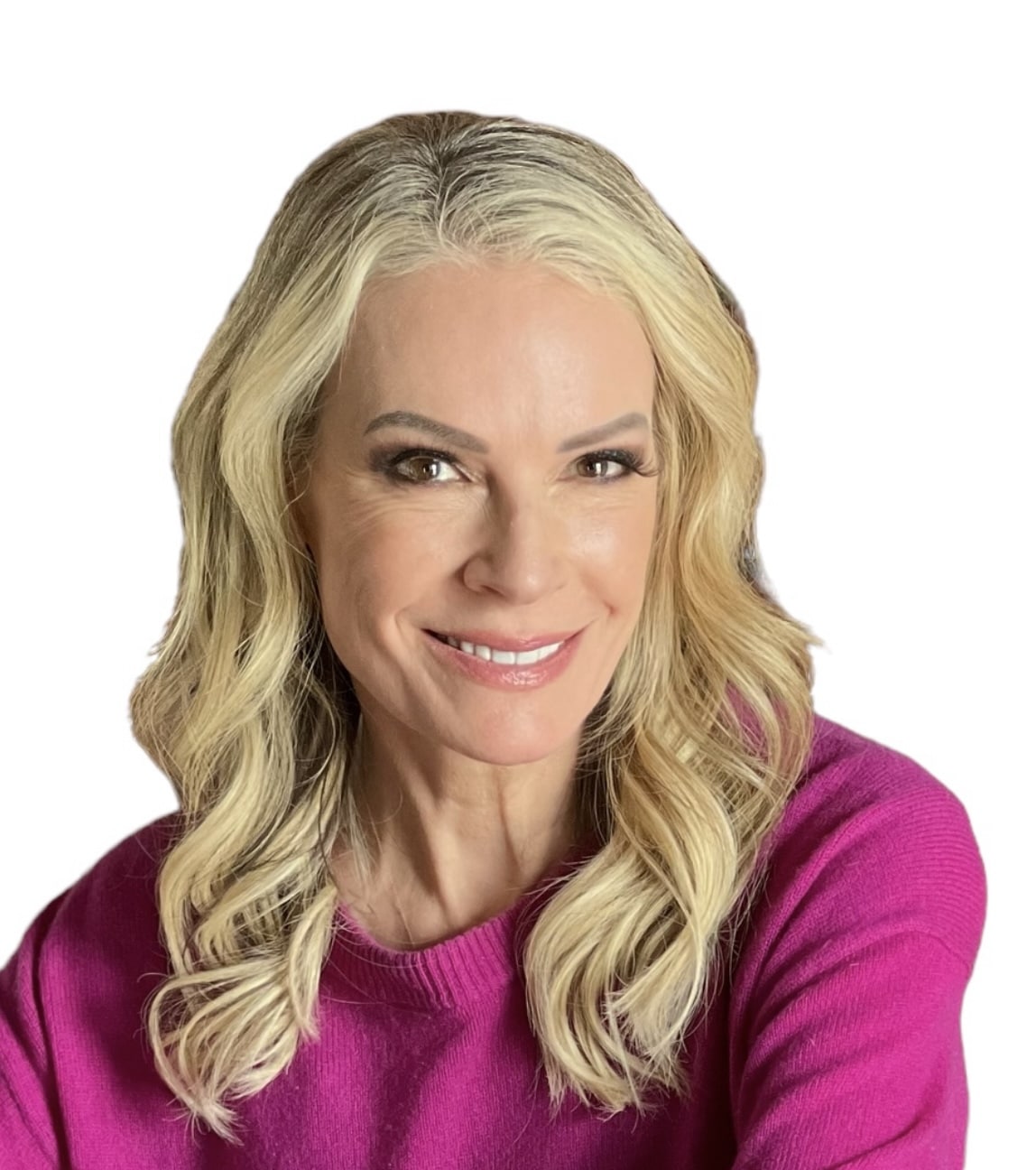
Dr. Nina Savelle-Rocklin is a psychoanalyst, author and radio host specializing in binge eating disorder. She is the author of The Binge Cure: 7 Steps to Outsmart Emotional Eating and Food for Thought: Perspectives on Eating Disorders, and co-editor of Beyond the Primal Addiction. She hosts The Dr. Nina Show radio program on LA Talk Radio.
More episodes

